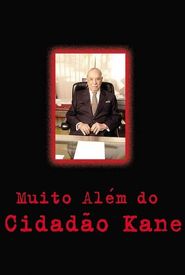Leonel de Moura Brizola, a renowned Brazilian politician, left an indelible mark on the country's political landscape. His life began on January 22, 1922, and was shaped by his education as an engineer. As a young professional, Brizola started his political journey under the mentorship of Brazilian president Getúlio Vargas, a pivotal figure in Brazilian politics, during the pivotal decades of the 1930s to the 1950s.
The illustrious political career of Brizola, a stalwart figure in Brazilian politics, stretched across numerous decades, during which he occupied a multitude of positions, a testament to his unwavering dedication to public service. Notably, he holds the distinction of being the sole politician to have served as the elected governor of not one, but two Brazilian states, a remarkable achievement that underscores his profound impact on the country's political landscape.
In addition to his gubernatorial roles, Brizola was instrumental in organizing the youth wing of the Brazilian Labour Party, a move that would have far-reaching consequences for the party's future. His tireless efforts in this capacity laid the groundwork for a new generation of leaders to emerge, and his influence can still be felt today.
Furthermore, Brizola's impressive resume includes stints as a state representative for Rio Grande do Sul, a position that allowed him to champion the causes of his constituents and advocate for their rights. He also served as the mayor of Porto Alegre, the capital of Rio Grande do Sul, where he was able to implement meaningful reforms and improvements that benefited the local community. Throughout his career, Brizola's commitment to public service has been unwavering, and his legacy continues to inspire and motivate future generations of politicians.
In the year 1958, a significant milestone was reached as Brizola was elected to the esteemed position of governor, marking the beginning of a remarkable journey in his political career. Subsequently, he played a pivotal role in thwarting a perilous coup attempt orchestrated by the Brazilian armed forces in the year 1961, a testament to his unwavering commitment to democracy and the rule of law.
However, fate had other plans, and in 1964, Brizola's political fortunes took a dramatic turn as he was forced into exile in Uruguay, a consequence of the Brazilian military dictatorship's rise to power.
After the authoritarian regime's decree outlawing his political participation was officially repealed in 1979, the illustrious Brazilian politician, Brizola, returned to his homeland and established the Democratic Labour Party, a political organization rooted in a democratic socialist, nationalist, and populist ideology.
Brizola's career was marked by his remarkable aptitude for crafting sharp, high-energy rhetoric, which was often accompanied by a frank and direct communication style. This distinctive approach to public speaking earned him widespread recognition as one of the most influential figures on the Brazilian left.
As Honorary President of the Socialist International, Brizola held a prestigious position from October 2003 until his passing on June 21, 2004.





















